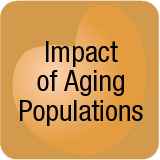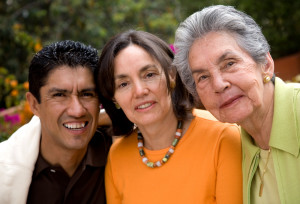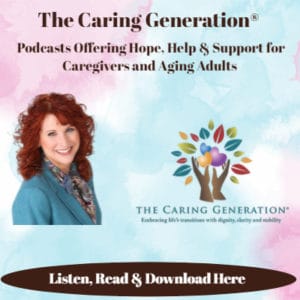How Generational Caregiving Affects Family, Finances and Retirement
 Generational caregiving means caring for grandparents, parents, and friends with significant age differences. Learn how to prepare and plan ahead for care needs at any time in life.
Generational caregiving means caring for grandparents, parents, and friends with significant age differences. Learn how to prepare and plan ahead for care needs at any time in life.
You may care for elderly parents, grandparents, or friends. Because of society’s mobility, families no longer live in the same cities. As a result, the person who eventually cares for you, and vice versa, may be a good friend.
So, how can individuals make it easy for caregivers to learn about their health and financial needs? If you receive healthcare, it’s likely you pay co-pays or deductibles.
Being a caregiver involves managing daily, medical and financial care. So as generational caregiving becomes more common, how can we learn from life experiences?
Adult Children Assume Parents Have It All Together
When my mother passed away and I started going through medical bills, monthly bills, and the bank account I discovered something shocking. My mother never balanced the checkbook.
This was a shock to me at the time because I was fanatical about balancing my checkbook to the penny each month. And not only that, I knew down to the penny what the money in my checking account was intended to pay each month.
All those years growing up I thought my parents had it all together and never considered otherwise. My dad was from the Greatest Generation, a WWII veteran who completed high school and joined the Conservations Corps and later the army.
My mother, whose mother passed away when she was five, took responsibility for raising her three younger siblings. She went to high school but did not graduate. Four of my siblings including myself went to college, two did not.
Surprising Findings
 It never occurred to me that my parents might benefit from my years of education, even if it was to show my mother how to balance her checkbook.
It never occurred to me that my parents might benefit from my years of education, even if it was to show my mother how to balance her checkbook.
I have no idea how she managed her and my father’s money all those years without actually knowing how much money was in their account.
Mom obviously had it all figured out. My parents were able to set aside money for retirement, although probably not in the best vehicles to obtain a good investment return.
My parents passed away when I was in my mid and late thirties. I see many other children my age, who have parents in similar situations.
Parents May See Interest by Adult Children as Intrusive
I am not sure how most parents would react, but I would suspect that if most children went to their parents to talk about balancing checkbooks and investing money for retirement, the conversation might not be met positively.
This includes not only financial information but also planning for later legal needs and healthcare. I always say that caregiving is a family issue.
This is because the responsibility for the care of parents can and often does fall on their children. Mostly in unpleasant ways especially when there are little or no retirement savings to pay for healthcare needs.
Generational Caregiving Discussions
I believe that there is a significant benefit to families discussing care needs and planning together. Sure this opens everyone up to know more about each other’s finances than one might prefer, however it can avoid issues later in life when parents, grandparents, or others need care.
Parents should start teaching children at very young ages the value of money and about health prevention. Rather than buying children electronics and other items why not let them learn to save a weekly allowance for these purchases?
Rather than driving through fast food restaurants as an easy meal fix, why not teach children how to really cook? By really cooking, I don’t mean using the microwave or preparing boxed foods. Cooking from scratch seems to be more of a hobby these days.
We must also work to save and ensure we have the ability to pay for care when we are older instead of passing financial obligations down to children or grandchildren.
It’s never too late or too early to have a generational caregiving conversation with your grandparents, parents, or children. After all, caregiving is both generational and financial.
Looking for More of What Everyone Should Know About Caring for Loved Ones? Check out Pamela’s Open-Caregiving Program.
© 2012, 2013, 2022 Pamela D. Wilson, All Rights Reserved.
Return to Impact of Aging Populations PageReturn to All Category Page



